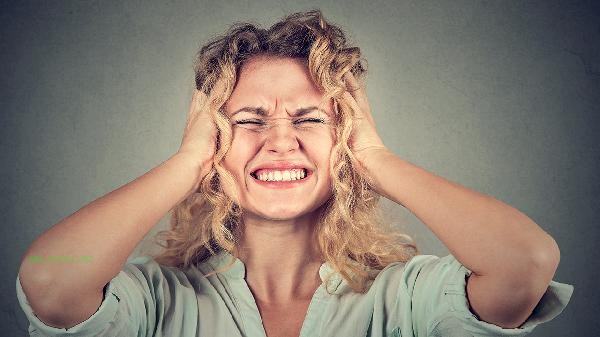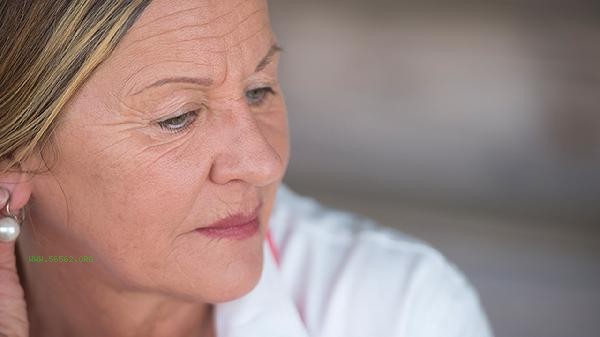Menopausal restlessness can be regulated by consuming moderate amounts of soy products, deep-sea fish, whole grains, nuts, dairy products, and other foods. It is also possible to take medications such as Guweisu tablets, Kunbao pills, Gengnian An tablets, Xiaoyao pills, vitamin B6 tablets, etc. according to medical advice. It is recommended to seek medical attention promptly and combine dietary and medication interventions under the guidance of a doctor.

1. Food
1. Soy Products
Soy products are rich in soy isoflavones, which have estrogen like effects and can help regulate hormonal fluctuations in menopausal women. Tofu, soybean milk and other foods can alleviate hot flashes, mood fluctuations and other symptoms. It is recommended to take an appropriate amount of them every day, but gout patients need to control the consumption.
2. Deep sea fish
Salmon, sardine and other deep sea fish contain rich omega 3 fatty acids, which can help reduce the inflammatory reaction in the body and improve the brain nerve conduction function. Eating 2-3 times a week can alleviate anxiety, but individuals with allergies should try it with caution.
3. Whole Grains
Whole grains such as oats and brown rice are rich in B vitamins and dietary fiber, which can stabilize blood sugar levels and promote serotonin synthesis. As a substitute for refined rice and white flour as a staple food, it can reduce emotional fluctuations, but those with weaker gastrointestinal function need to gradually increase their intake.
4. Nuts
Nuts such as walnuts and almonds contain magnesium and healthy fats, which can regulate the excitability of the nervous system. One small handful per day can relieve tension, but it is important to control the total amount to avoid excessive calorie intake.
5. Dairy products
Milk and yogurt provide calcium and tryptophan, with the former preventing osteoporosis and the latter converting into serotonin to improve sleep quality. Lactose intolerant individuals can choose low lactose products, and drinking warm milk before bedtime is more effective.

2. Medication
1. Guweisu Tablets
Guweisu tablets improve symptoms such as menopausal palpitations and insomnia by regulating autonomic nervous system function, and are suitable for patients with mainly neurological disorders. Mild gastrointestinal reactions may occur during medication, and individuals with abnormal liver function should use with caution.
2. Kunbao Pill
Kunbao Pill is a traditional Chinese patent medicines and simple preparations, which has the effect of nourishing the liver and kidney, and has a significant effect on the symptoms of liver and kidney yin deficiency such as hot flashes, night sweats, dizziness and tinnitus. During use, avoid spicy and stimulating foods, and discontinue use when experiencing a cold or fever.
3. Gengnian An Tablets
Gengnian An Tablets contain ingredients such as Rehmannia glutinosa and Alisma, which can nourish yin, clear heat and calm the mind. They are suitable for those who are irritable and prone to sweating at night. Attention should be paid to taking Western medicine with a 2-hour interval, and those with spleen deficiency and loose stools should not take it for a long time.
4. Xiaoyao Pill
Xiaoyao Pill can soothe the liver and spleen, alleviate symptoms such as chest and rib distension and emotional depression caused by liver qi stagnation. Maintain a relaxed mood during medication and avoid taking it together with nourishing traditional Chinese medicine.
5. Vitamin B6 tablets
Vitamin B6 participates in neurotransmitter synthesis and has a certain help in improving depressive mood. Long term high-dose use may lead to peripheral neuropathy, and it is recommended to supplement in the short term under the guidance of a doctor.

Menopausal women are recommended to maintain a regular daily routine, including 30 minutes of brisk walking, yoga, and other moderate intensity exercises, in addition to dietary and medication adjustments. During exercise, the heart rate should be controlled at 60% -70% of the maximum heart rate. Soaking feet in 40 ℃ warm water for 15 minutes before bedtime can help improve sleep and avoid drinking strong coffee or tea before bedtime. You can try mindfulness meditation to relieve anxiety, at least 3 times a week for 15-20 minutes each time. Pay attention to maintaining social activities and communicate with family and friends to vent emotions. Maintain appropriate temperature and humidity indoors, and wear breathable cotton clothing to reduce hot and humid discomfort. Regularly conduct bone density and gynecological examinations, and adjust intervention plans in a timely manner.




Comments (0)
Leave a Comment
No comments yet
Be the first to share your thoughts!